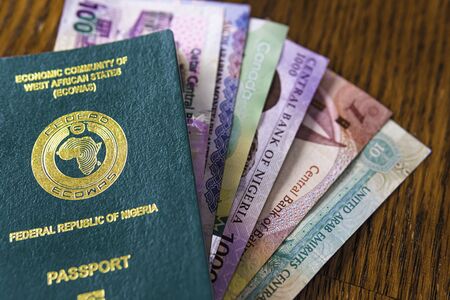What is the cost of studying in Canada from Nigeria? How much should I expect to pay for tuition fees, accommodation, food, books, transportation, and other expenses?
Canada has become a popular destination for Nigerian students because of its high-quality education system, low living costs, and friendly culture. The country also offers numerous scholarships and bursaries to attract foreign talent.

To answer these questions, we surveyed Nigerian students studying in Canada. First, we asked them to estimate their expected costs for studying in Canada.
According to most Nigerian students presently studying in Canada: the average tuition fee for undergraduate programs ranges between CAD 12,000 (6,987,430 Naira) to CAD 30,000 (18,968,576 Naira) per year. For postgraduate studies, the fees range between CAD 18,000 (10,981,146 Naira) and CAD 57,000 (36,940,295 Naira).
Table of Contents
- 1 Cost of Studying in Canada from Nigeria
- 1.1 Tuition Fee
- 1.2 Accommodation Cost for Nigerian Students in Canada
- 1.3 Cost of Travel for Nigerian Students in Canada
- 1.4 Costs of Health and Insurance for Nigerian Students in Canada
- 1.5 Cost of living in Canada for Nigerian Students
- 1.6 Cost of Studying and Living in Canada – By Cities
- 1.7 Cost of Canada Student Visa Nigerians
- 1.8 Cost of Canadian taxes for Nigerians
- 1.9 Most Affordable Canadian Universities
- 1.10 Scholarships to Reduce the Cost of Studying in Canada from Nigeria
- 1.11 Frequently Asked Questions
Cost of Studying in Canada from Nigeria
Let us look at our complete guide to the cost of studying in Canada from Nigeria, including tuition fees, living expenditures, and the most affordable Canadian universities, to help you prepare ahead for your new life in Canada!
Tuition Fee
We all know that college tuition fees account for a sizable amount of the cost of studying in Canada. The overall cost is determined by various criteria such as the type of course of study, its international reach and reputation, and the city of study, among other factors.
The table below displays the weighted average tuition fees (in Naira) for full-time Nigerian students based on their subject of study.
| Course | Average Tuition Fees per year |
| Application fees | $50 (₦3,707) to $200 (₦14,831) |
| Undergraduate Courses | CAD 12,000 – CAD 30,000 (6,46,000 ₦ -16,15,000) |
| Engineering & Medicine Courses (UG Level) | CAD 22,000 (₦11,69,000) |
| Humanities, Business & Management (UG Level) | CAD 5,500 (₦2,96,000) to CAD 6,500 (₦3,50,000) |
| Law | CAD14,000 (₦8,45,597.39) |
| Visual and Performing arts | CAD 5,000 (₦3,01,828) to CAD 5,000 (₦3,01,828.55) |
| Postgraduate Courses | CAD 18,000 (₦9,54,000) |
| MBA | CAD 28,000 (₦14,75,000) |
| Executive MBA | CAD 29,000 (₦17,51,351) |
| Law | 10,000 CAD to 55,000 CAD (₦5,50,000 – ₦30,00,000) |
| Engineering | 19,301 CAD (₦11,57,152) |
| Dentistry | 22,472 CAD (₦13,47,276) |
| Nursing | 47,800 CAD (₦28,65,568) |
Accommodation Cost for Nigerian Students in Canada
In addition, Nigerian students studying in Canada have to bear accommodation costs apart from the tuition fee. While many universities provide on-campus housing, you can also live off-campus. The accommodation cost varies from one city to another or campus to another and ranges from $600 (₦464,576) to $2000 (₦1,581,920) per month.
However, there are a few ways that Nigerian students can save money on accommodation costs. For instance, many universities offer discounted rates to international students. Additionally, some landlords may be willing to negotiate lower prices for long-term tenants. In any case, it is important to do your research in order to find the best deal possible.
Cost of Travel for Nigerian Students in Canada
Canada has a cross-continent road network that extends into the far reaches of the United States. However, travel costs in Canada are prohibitively high for both short and large distances.
Thus, Nigerian students prefer taking subways, trains, and buses, with average monthly costs ranging from CAD 80 (₦26,568) to CAD 110 (₦36,531).
Costs of Health and Insurance for Nigerian Students in Canada
Medical insurance is included in the final cost estimates of studying in Canada because students must be covered prior to the start of the program. The total cost per year might range from CAD 300 (₦99,630) to CAD 800 (₦ 265,680) depending on the type of coverage chosen.
Read Also:
- Study in Canada: An Ultimate Guide for Nigerian Students
- Study in Canada from Nigeria – Requirements, and Costs
- How to Study in Canada Without Breaking the Bank
Cost of living in Canada for Nigerian Students
You should set aside some money for grocery shopping, utilities, and emergency situations. When preparing your budget, keep the following frequent expenses in mind:
Food: Canadians spend an average of $5 per day on food, which is less than half the cost of what people in Spain and Italy pay.
Utilities: There are a few things you may have to spend more for in Canada, including utilities such as Electric bills, Gas bills, Water and Sewage, Trash and Recycling, Internet, Telephone, and Cable.
Cost of Studying and Living in Canada – By Cities
When looking to study or live in Canada, it’s important to consider the cost of living in each city. We provide a city-by-city breakdown of the cost of living.
So whether you’re looking for a small-town atmosphere or a bustling metropolis, each Canadian city has its own unique cost of living. Here is the average cost of living in Canada for Nigerian students:
| City | Average Cost of Living |
| Toronto | 37,000 CAD yearly (₦ 22,18,460) |
| Vancouver | 38,484 CAD yearly (₦ 23,08,210) |
| Montreal | 25,000 CAD yearly (₦14,99,845) |
| Ottawa | 20,000 CAD yearly (₦ 11,99,301) |
| Calgary | 26,904 CAD yearly (₦16,13,865) |
Cost of Canada Student Visa Nigerians
The first step in studying in Canada is to obtain a valid student visa. The Canadian student visa is a Study Permit, costing around CAD 150 (50,815 Naira).
The application fees vary according to the student’s nationality and the university to which they apply.
Nigerian students must present proof of money, a letter of admission, and other documents. The bank balance needed to apply for a Canadian student visa is ₦10,000,000 or more for one year. Check out how to get a Canadian Student Visa from Nigeria.
Cost of Canadian taxes for Nigerians
You must file Canadian income tax returns as a Nigerian student studying in Canada, depending on your resident status. Even if you do not obtain citizenship, filing taxes can be advantageous in terms of benefits such as GST credits, the Child Tax Benefit, or requesting a refund. Students who earn money through teaching, research assistantships, work in Canada, or investments must file an income tax return. Even students who receive income from sources outside of Canada must report it.
Most Affordable Canadian Universities
The cost of attending Canadian institutions is among the lowest in the world. Here are the five most affordable Canadian universities for Nigerian students to manage the cost of studying there:
- University of Montreal
- McGill University
- McMaster University
- University of Guelph
- Memorial University of Newfoundland
- University of British Columbia
- University of Brandon
- Université de Saint-Boniface
- Simon Fraser University
- University of Alberta
Scholarships to Reduce the Cost of Studying in Canada from Nigeria
International students are always looking for ways to reduce the cost of studying in Canada. This is especially true for Nigerian students, where tuition and other expenses can be quite high. Several scholarships available can help reduce the cost of your education in Canada. These scholarships typically offer partial or full scholarship awards that cover tuition and other school-related expenses. You need to apply, so be sure to research which scholarships are available and apply as soon as possible!
The list of scholarships for Nigerian students that are offered in Canada is shown below:
- Vanier Canada Graduate Scholarships
- Ontario Graduate Scholarships
- Lester B. Pearson International Scholarships
- President’s Scholarships for World Leaders
- International Leader of Tomorrow Awards
- University of Manitoba Graduate Fellowships
- The Seneca Renewable Entrance Scholarships
- Assist-on Scholarships
- Trudeau Foundation Scholarships
Conclusion
Conclusively, the cost of studying in Canada from Nigeria can be expensive. However, with proper planning and research, it is possible to find affordable options for your education. By understanding the costs associated with studying in Canada, you can make informed decisions about your education and budget accordingly. With careful planning and research, the cost of studying in Canada from Nigeria can be manageable.
Frequently Asked Questions
These FAQs answer all the most common questions about studying in Canada, from tuition fees to living costs:
How much money do I need to study in Canada?
The total amount needed to study in Canada per year ranges from 20,000 to 57,000 CAD. Therefore, the cost of the study in Canada is (11,99,301) – (36,940,295) in Naira.
Is it affordable to study in Canada?
Yes, studying in Canada is less expensive than in nations such as the United Kingdom, Australia, and the United States. However, the actual cost of living in the country is determined by tuition, housing, personal lifestyle, and incidental expenses.
How long does it take to get a Canadian study visa from Nigeria?
The processing time for a Canadian study visa from Nigeria is usually two weeks. Therefore, you should apply at least 4-6 months before your university degree program starts. After you have applied, you can expect that you will wait about 30 to 60 days for the decision.
What are the requirements for a Nigerian to study in Canada?
The requirements for studying in Canada are typically straightforward. You possess a current passport and the necessary visa. It’s crucial to have strong grades and test results because Canadian institutions are frequently more selective than American universities.
How much bank balance is required for a Canada student visa
The bank balance required for a Canada student visa is usually around ₦10,000,000 or more. The exact amount will depend on the specific requirements of the visa you are applying for. The minimum balance is the proof of funds needed to survive in the country and apply for a student permit.









